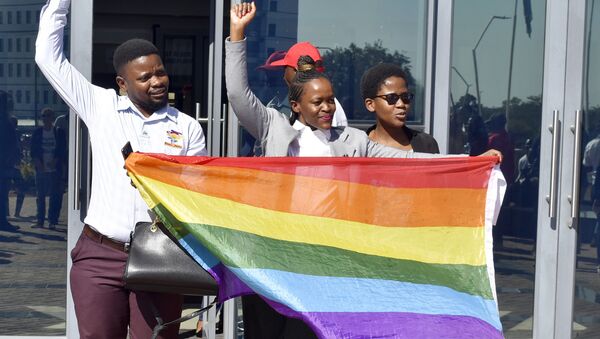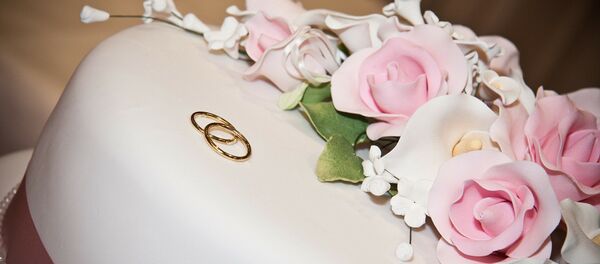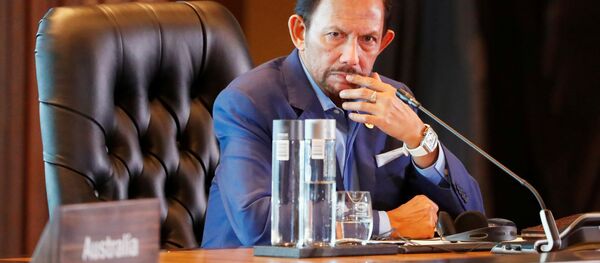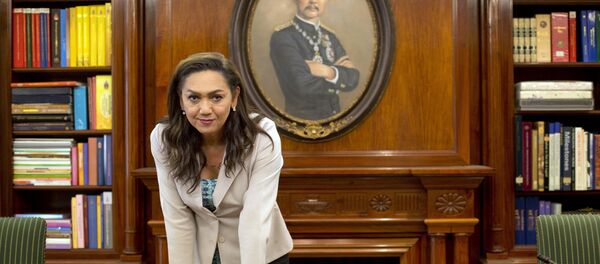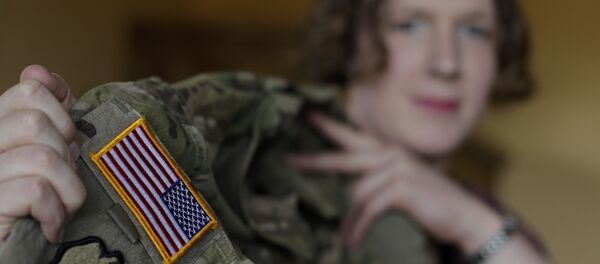The laws punished the incriminated with either a five- or seven-year prison term and date to the pre-1966 period when Botswana was ruled by the British Empire. The British imposed their homophobic and transphobic values on the countries they ruled around the world, codifying them in penal codes that persist in dozens of countries decades after the end of formal imperial rule, Sputnik reported.
BREAKING NEWS! Botswana High Court today ruled to scrapped laws that criminalise consensual same-sex relations and impose up to seven years in prison.#Repeal164 #DecrimBotswana #ReBatswana pic.twitter.com/PJ7tyP4z79
— #LEGABIBO (@legabiboadvo) June 11, 2019
“It is not the business of the law to regulate the private behavior of two consenting adults,” Justice Michael Leburu said before a packed courtroom Tuesday, the Washington Post reported. He noted that sexual orientation is “not a fashion statement.”
“What regulatory joy and solace is derived by the law, when it proscribes and criminalizes such conduct of two consenting adults, expressing and professing love to each other, within their secluded sphere, bedroom, confines and/or precinct?” wrote Leburu. “Any criminalization of love or finding fulfillment in love dilutes compassion and tolerance.”
Photos and videos posted on Twitter showed Botswanans across the country celebrating the victory.
Scenes of joy as decriminalization Of homosexuality made official in Botswana #repeal164 pic.twitter.com/pBch7o6kdh
— Ryan Brown (@ryanlenorabrown) June 11, 2019
Botswanans rallied behind an anonymous gay man known only by the initials L.M. who presented the petition, tweeting the hashtags #Repeal164 and #LEGABIBO, for Lesbians, Gays and Bisexuals of Botswana, a human rights group of which L.M. is a member.
“We are not looking for people to agree with homosexuality but to be tolerant,” L.M. wrote in his deposition.
WORLD STOP! 🚨🚨🚨
— #LEGABIBO (@legabiboadvo) June 11, 2019
Press Release: Botswana High Court scraps laws that decriminalse consensual same sex sexual relations.#DecrimBotswana #Repeal164 #ReBatswana pic.twitter.com/mNRx9MwWUm
“It has taken a long time for our community to be where it is,” Anna Mmolai-Chalmers, CEO of LEGABIBO, said in a Tuesday statement. “This incredibly life-changing decision, although it does not right all the wrongs done to individual members of the LGBT community, is a step towards restoring our dignity as human beings.”
“Not only does it provide legal affirmation and recognition of the rights of LGBTIQ persons, but it allows an important space for addressions public health issues more efficiently and effectively. We can finally start building a more tolerant society. The real work starts now,” she said.
“The Botswana courts continue to set an example for other courts in the region on the important role that the judiciary can and should play in protecting and promoting human rights of all persons,” said Tashwill Esterhuizen, the program lawyer for nonprofit human rights group South African Litigation Center, in a Tuesday statement. “We hope that this case will set an important precedent for other courts in the region and that they, too, will follow suit.”
Celebrating the victory of our Botswna Cdes #Repeal164 #Justice @galzinf @teddymunyimani @AMSHeRorg @CALAdvocacy pic.twitter.com/QxhX3CUcwz
— sylvester munyaradzi (@sylmunya) June 11, 2019
The cause of striking down the passages was taken up by President Mokgweetsi Masisi, too, who said in December 2018 that he believed the rights of LGBT people should be legally protected. With parliamentary elections in October, it’s unclear what effect the ruling will have on the politics of the 2 million-strong country.
The news follows a major setback for the LGBT community in Kenya last month, when that country’s high court voted to uphold similar parts of its penal code after being widely expected to strike them down.
On May 24, Kenya’s High Court ruled unanimously to uphold Sections 162 and 165 of its penal code that, like Botswana, are relics of Kenya’s time as a British colony, the Kenya Star reported at the time.
Judge Chacha Mwita said in a statement for the court that “the impugned provisions … are not vague” and the petitioners had “failed to prove that the provisions are discriminatory” because they apply to all persons, not just LGBT people, the Star reported.
In January, the Angola Parliament voted not only to scrap its colonial-era “vices against nature” clauses in the new version of its law code, but also passed an anti-discrimination clause, punshing people who discriminate against others on the basis of sexual orientation with up to two years in prison, Sputnik reported.
Other African countries have also removed their anti-gay laws in recent years, including the Seychelles, Mozambique, Sao Tome and Principe and Lesotho. However, Botswana’s southern neighbor, South Africa, remains the only country on the continent to have legalized same-gender marriage as well.
“We still have a long way to go to engage all opposing factions, be it our religions community, our cultural community - we need to engage them and educate them about the need to be tolerant,” Cindy Kelemi, executive director of the Botswana Network on Ethics, Law and HIV/AIDS, told Botswanan daily Mmegi on Tuesday.

